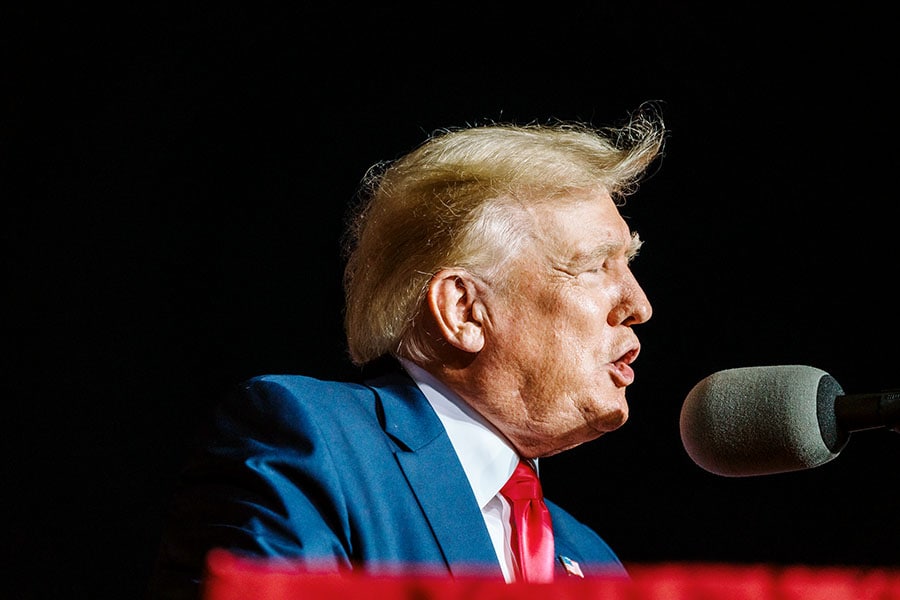
Another Trump mystery: Why did he resist returning govt documents?
For four years, Donald Trump treated the administration as an extension of his private real estate company. "My generals," he repeatedly said of the active-duty and retired military leaders; "my money," was the cash he raised through his campaign or for the Republican National Committee. And White House documents?
 Donald Trump holds a rally at the county fairgrounds in Waukesha, Wis. on Aug. 5, 2022. (Jamie Kelter Davis/The New York Times)
Donald Trump holds a rally at the county fairgrounds in Waukesha, Wis. on Aug. 5, 2022. (Jamie Kelter Davis/The New York Times)
For four years, former President Donald Trump treated the federal government and the political apparatus operating in his name as an extension of his private real estate company.
It all belonged to him, he felt, melded together into a Trump brand that he had been nurturing for decades.
“My generals,” he repeatedly said of the active-duty and retired military leaders who filled his government. “My money,” he often called the cash he raised through his campaign or for the Republican National Committee. “My Kevin,” he said of Rep. Kevin McCarthy, the Republican leader.
And White House documents?
“They’re mine,” three of Trump’s advisers said that he stated repeatedly when he was urged to return boxes of documents, some of them highly classified, that the National Archives sought after Trump took them with him to Mar-a-Lago, his private club in Palm Beach, Florida, in January 2021. A nearly 18-month back-and-forth between the government and Trump ended in an extraordinary FBI search for the documents at Mar-a-Lago last week.The question, as with so much else around Trump, is why? Why did he insist on refusing to turn over government papers that by law did not belong to him, igniting another legal conflagration? As with so much else related to Trump, there is not one easy answer.
©2019 New York Times News Service







